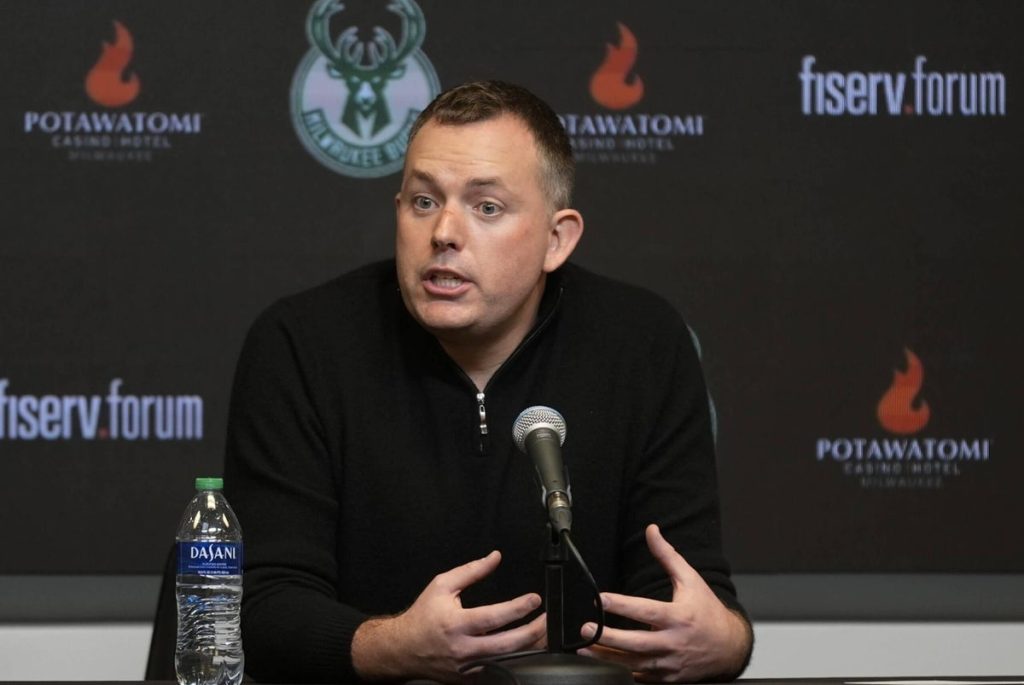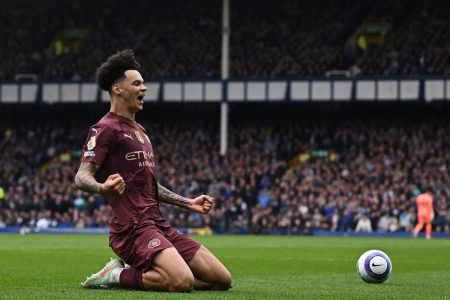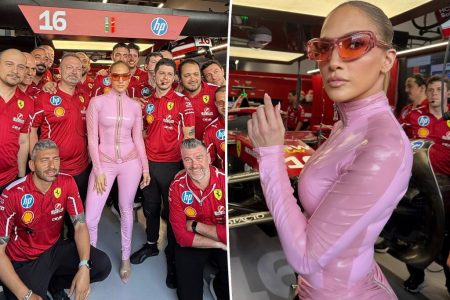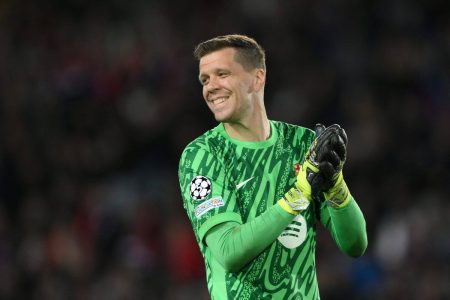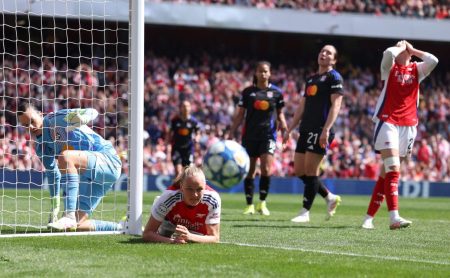Milwaukee Bucks General Manager Jon Horst recently addressed reporters for the first time since the 2025 NBA trade deadline, opening up about the significant roster moves the team made. These moves marked a pivotal moment for the franchise, as it bid farewell to a beloved veteran while welcoming fresh talent aimed at bolstering the team’s championship aspirations. The Bucks were notably active at the deadline, orchestrating a four-team trade that sent Khris Middleton and AJ Johnson to the Washington Wizards in exchange for Kyle Kuzma from Washington and Jericho Sims from the New York Knicks. In a separate deal, the Bucks traded young wing MarJon Beauchamp to the L.A. Clippers for 24-year-old guard Kevin Porter Jr. While these transactions were strategically driven, the most emotional and headline-grabbing decision was parting ways with Middleton, a three-time All-Star and a cornerstone of the Bucks’ 2021 NBA championship run.
Horst acknowledged the immense difficulty of trading Middleton, a player he described as a franchise icon and a deeply personal friend. Middleton spent 12 seasons with the Bucks, establishing himself as one of the greatest players in franchise history. His contributions on and off the court, including his role in securing the team’s first NBA title in 50 years, made the decision to trade him incredibly challenging. Horst admitted that it was the hardest transaction he has ever made, both from a human and a basketball perspective. He emphasized his personal connection to Middleton and his family, even joking about having more Middleton jerseys in his house than anything else. Despite the emotional weight, Horst insisted that the decision was made with the team’s best interests in mind, aiming to maximize their current championship window. He expressed confidence that the trade was the right move, even if it didn’t sit well with him personally.
The decision to trade Middleton was rooted in the belief that the Bucks would emerge as a stronger, more versatile team after the deadline. Horst clarified that the move wasn’t simply a comparison between Middleton and Kuzma but rather about how the roster would look before and after the trade. He explained that the deal allowed the team to add depth and diversity to its lineup, addressing areas where the Bucks needed improvement. Horst highlighted the importance of building a well-rounded roster, suggesting that the additions of Kuzma and Porter Jr. would give the team more flexibility and options heading into the playoffs. While acknowledging Middleton’s irreplaceable legacy, Horst stressed that the move was about positioning the team for success in the present.
One of the key reasons the Bucks targeted Kuzma was his potential to thrive in Milwaukee’s system. Despite Kuzma’s underwhelming stats with the Washington Wizards, where he averaged 15.2 points, 5.8 rebounds, and 2.5 assists per game on 42% shooting from the field, Horst and head coach Doc Rivers believe he can unlock more of his potential in a smaller role alongside elite talent. At 29 years old, Kuzma is in his prime, and the Bucks’ leadership is optimistic that he will excel in their system. Horst praised Kuzma’s ability to move the ball and his defensive versatility, noting that he can guard multiple positions and make impactful plays on both ends of the floor. He also drew parallels between Kuzma’s transition game and that of Bucks star Giannis Antetokounmpo, emphasizing Kuzma’s effectiveness in fast-break situations. The addition of Kuzma is expected to add a new dimension to the Bucks’ offense and defense, making them a more formidable opponent in the playoffs.
Financial considerations also played a role in the Bucks’ deadline moves, though Horst was quick to clarify that the primary motivation was to improve the team’s chances of winning. By executing the trades, the Bucks managed to get under the NBA’s second apron, significantly reducing their luxury tax payment for the season and gaining greater roster flexibility for the future. Horst emphasized that there was no mandate from ownership to cut costs but rather a shared focus on winning. He explained that the financial benefits were a byproduct of strategic decisions aimed at enhancing the team’s performance. The Bucks’ front office is hopeful that these moves will not only yield immediate success but also position the team for sustained competitiveness in the years to come.
Despite the significant changes to the roster, Horst revealed that he did not consult Bucks superstar Giannis Antetokounmpo about the decision to trade Middleton. Antetokounmpo and Middleton had been the face of the franchise for over a decade, and their partnership was integral to the Bucks’ success. However, Horst felt it would have been unfair to involve Antetokounmpo in the decision, as it could have put him in an awkward position. Instead, Horst trusted in the relationship they had built over the years, knowing that Antetokounmpo would continue to trust the front office to make decisions in the team’s best interest. Horst expressed confidence that the new additions would mesh well with Antetokounmpo and the rest of the roster, helping the Bucks achieve their ultimate goal of another championship.


